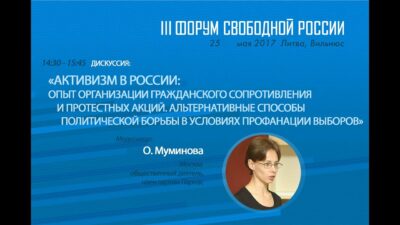The U.S. Embassy in Moscow has called on the Russian authorities to “thoroughly” investigate the police beating of 78-year-old veteran human rights defender Lev Ponomaryov.
The embassy said in a message on Twitter on March 15 that it was concerned over the situation, which occurred when police detained dozens of protesters, including Ponomaryov, after he had argued with police over the legality of single-picket protests, which do not require prior permission from city authorities.
“We’ve seen alarming press reports that police beat respected human rights activist Lev [Ponomaryov] after he peacefully picketed on March 14 & that he’s been hospitalized. Authorities must conduct a thorough, credible investigation,”the embassy’s tweet said.
The Moscow Helsinki Group, a rights group, also condemned the “unacceptable actions” by police during the dispersal of single-picket protesters who were trying “to protect the constitution.”
On March 14, mostly young protesters rallied in front of the headquarters of the Federal Security Service (FSB) in Moscow to protest what they say is political repression in the country. Some unfurled signs calling the security service the “Federal Service of Lawlessness,” while others shouted, “Shame!”
Ponomaryov said later that he was punched in the face while in police custody and brought to a hospital with symptoms of a concussion. Medical personnel later concluded that Ponomaryov did not have a concussion.
The action was organized by supporters of men convicted this year on terrorism charges, many of whom said in court that they had been tortured by the FSB.
A court in the Penza region last month handed terms of between six years and 18 years to seven young men who were accused of creating a terrorist organization known as Set (Network).
Russian investigators said the group planned to organize a series of explosions in Russia during the presidential election and the World Cup soccer tournament in 2018 “to destabilize the situation” in the country and to organize an armed mutiny.
They have all denied the charges in court, and most said they had been beaten and tortured while in custody with electrodes to extract confessions.
Two other defendants in the case are still on trial in St. Petersburg.



